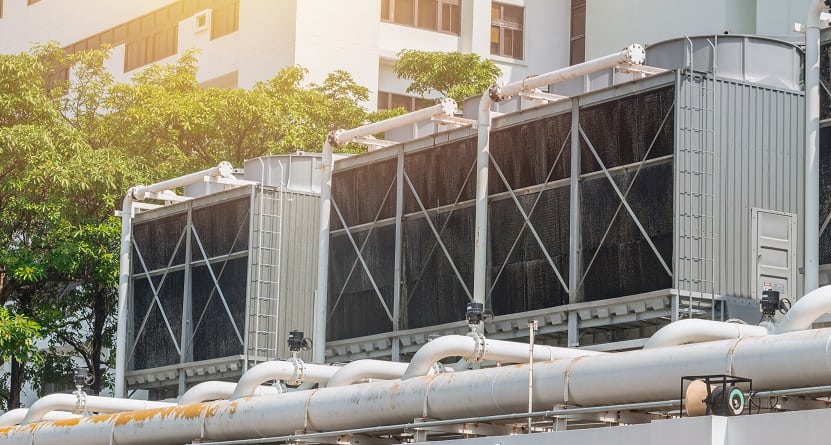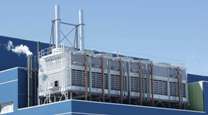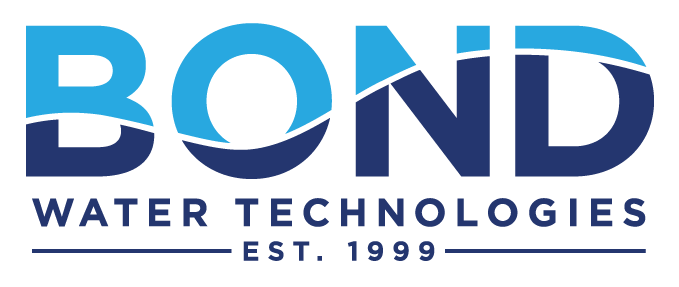
HOW DO YOU KNOW IF YOUR CURRENT COOLING WATER TREATMENT PROGRAM IS WORKING EFFECTIVELY?
When was the last time you had your cooling water treatment program evaluated?
Is your current cooling water treatment program consuming more energy and resources than it should? Are you confident that it is being administered properly, and not putting unnecessary and costly wear and tear on your equipment? Guard against your cooling water treatment program putting unnecessary wear and tear on your equipment!
Over the years, we have developed the finest line of cooling water services available for comfort, process, and industrial applications. No expense has been spared in creating a high-quality line of scale and corrosion inhibitors, along with a full selection of the most state-of-the-art microbiological control products.
Cooling water systems are typically the highest user of energy in facilities. Continuous use without fouling of these systems requires proper chemical treatment  and preventive maintenance. The problems normally associated with cooling water systems are scale, corrosion, microbiological fouling, and suspended solids control. Bond’s cooling water services program is designed to control these problems in open re-circulating systems, maximizing water reuse, minimizing water makeup, and providing as green a technology as possible to achieve these goals.
and preventive maintenance. The problems normally associated with cooling water systems are scale, corrosion, microbiological fouling, and suspended solids control. Bond’s cooling water services program is designed to control these problems in open re-circulating systems, maximizing water reuse, minimizing water makeup, and providing as green a technology as possible to achieve these goals.
Contact us today, and we will perform a no-obligation, no-cost assessment of your cooling water treatment program status and needs. If you have concerns about the state of your equipment, we can evaluate that for you too. Bond has an HVAC Rehab Division that maintains repairs, refurbishes and can replace, if necessary, your facility’s water treatment equipment. Learn more about our HVAC Rehab Division.
Bond’s successful cooling water services program approach includes
- Specifically engineered programs for your specific plant needs
- Green chemistries and non-chemical water treatment offerings
- Organic, inorganic, non-phosphate, and non-acid treatment programs
- Calcium phosphate and calcium carbonate deposit inhibitors
- State-of-the-art yellow metal corrosion inhibitors
- Dispersants and antifoulants, along with cleaners, to remove growing and troublesome biofilms
- Oxidizing and non-oxidizing biocides
- Legionella program protection and consultation, utilizing the HACCP Plan
- White rust control technology
- Automated halogen systems
- Fully integrated control systems of the latest technology for on-site and off-site monitoring
- State-of-the-art closed system treatments, programs, and inhibitors, along with microbiological control
- Glycol system inhibitors and glycol monitoring
